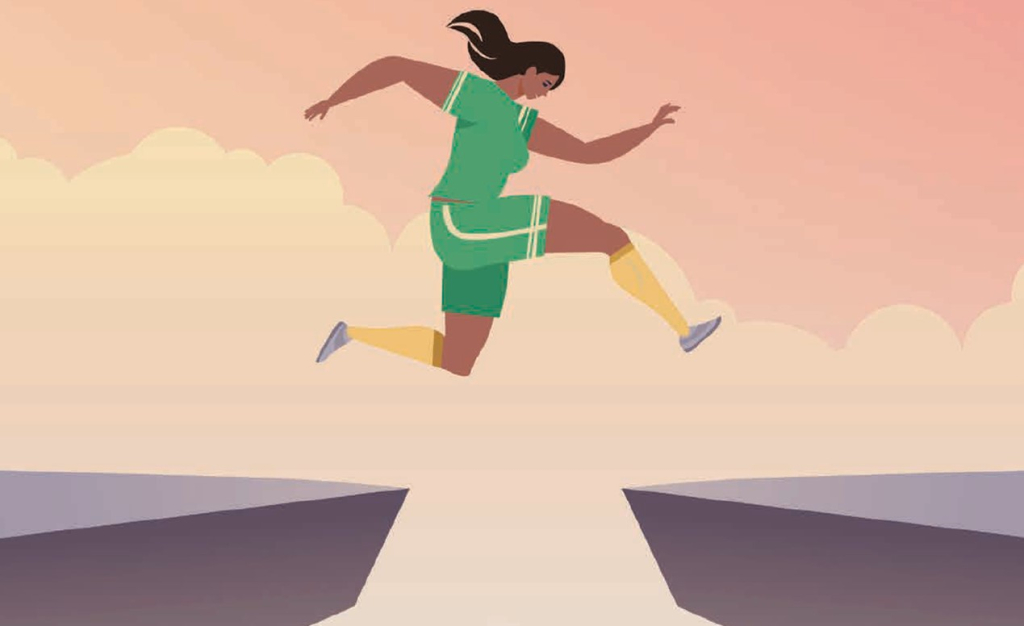Brussels, 13 February 2024: A report published today demonstrates how antigypsyism (the specific form of structural racism faced by Romani and Traveller people) is the primary barrier preventing Roma, Sinti, and Travellers from participating in sport and physical activity in Europe. The report, Moving On: Access to Sport for Roma, Sinti, & Travellers in Europe, was published by the European Roma Rights Centre (ERRC) and a coalition of six other organisations as part of the Moving On project and is based on research conducted in four European countries (Czech Republic, Ireland, Italy, and Spain). It is the first research to examine access to sport for Romani and Traveller people, as well as the role sport can play as a tool of inclusion and anti-discrimination.
“In the sports halls we cannot go, in the school gym we cannot go. Everywhere we have a ban. In their eyes those children don’t deserve it, because they don’t fulfil the school attendance, they don’t have good grades, sometimes they have punishments from teachers. I understand this not good, but if we break their determination and we only tell them they are worth nothing then we are only making it worse” said a Romani social worker from Rotava, Czech Republic who coaches football for Romani children.
Community members and experts interviewed for the project described how direct discrimination is a huge barrier to participation, but also how the effects of antigypsyism and racialised poverty have an even larger effect on preventing access to sport and physical activity. For marginalised and segregated communities, often without regular access to public water supply or basic infrastructure, accessing sport is a near impossibility and cannot be overcome simply with improved access schemes.
“There are higher difficulties with this community. It is a more marginalised and discriminated community. I think of the camps that are close to the bypass roads and far from the city centre, from services” said a women’s football coach in Padua, Italy.
The research noted the lack of targeted measures in each of the four countries aimed at encouraging access to sport for Roma, Sinti, or Travellers. The unique level of exclusion faced by Romani and Traveller people in all the study countries warrants special consideration by sport policy makers. In addition to the lack of Roma-specific measures, the gender awareness that exists in sport policy is largely colour-blind, resulting in a de facto focus on the majority (white) female population without consideration of the needs of women and girls from minority backgrounds. The report highlights how despite assurances of gender-based policy at a European and member state level, it is women and girls from Roma, Sinti, and Traveller backgrounds who are the most disadvantaged with little action being taken to address this from competent authorities.
“I also believe that many role models are missing. The importance of role models in the world of sports is huge. We need boys and girls who say, ‘Wow, I want to be the future Alexia of Barça or the future Romani Messi’” said a young Romani woman from Vilassar de Mar, Spain.
While the need for more visible representation was highlighted by communities, sports associations, public authorities, and EU representatives, many community members did not feel adequately protected from discrimination and racial hatred to risk being labelled as a role model. As an Irish Traveller man interviewed in Dublin put it:
“Would you want to put yourself out there when you know there’s a high possibility that you’re going to be called names because you’re a Traveller, you’re going to have all these negative stereotypes about your community? You wouldn’t want that…”
The report identifies the best solutions to encouraging increased sport participation as those that are most participatory in terms of ownership of the activities by Romani and Traveller communities. These sport programmes were seen to have benefits beyond the immediate individuals, providing embodied examples of true inclusion which may even be used to tackle structural issues brought about by antigypsyism. The project organisations argue that using sport as a tool to combat racism should not be relegated to the sidelines but promoted as a working policy tool throughout Europe to overcome antigypsyism.
The report Moving On: Access to Sport for Roma, Sinti, & Travellers in Europe can be downloaded here in English, Czech, Italian, and Spanish.
This research is part of the Moving On project which seeks to improve access to sport and physical activity for Roma, Sinti, and Travellers. The project is the result of a coalition between seven civil society organisations: ALDA, the ERRC, Exchange House Ireland, FAGiC, the Fare network, GEA Cooperative, and INEX-SDA Fotbal Pro Rozvoj.
